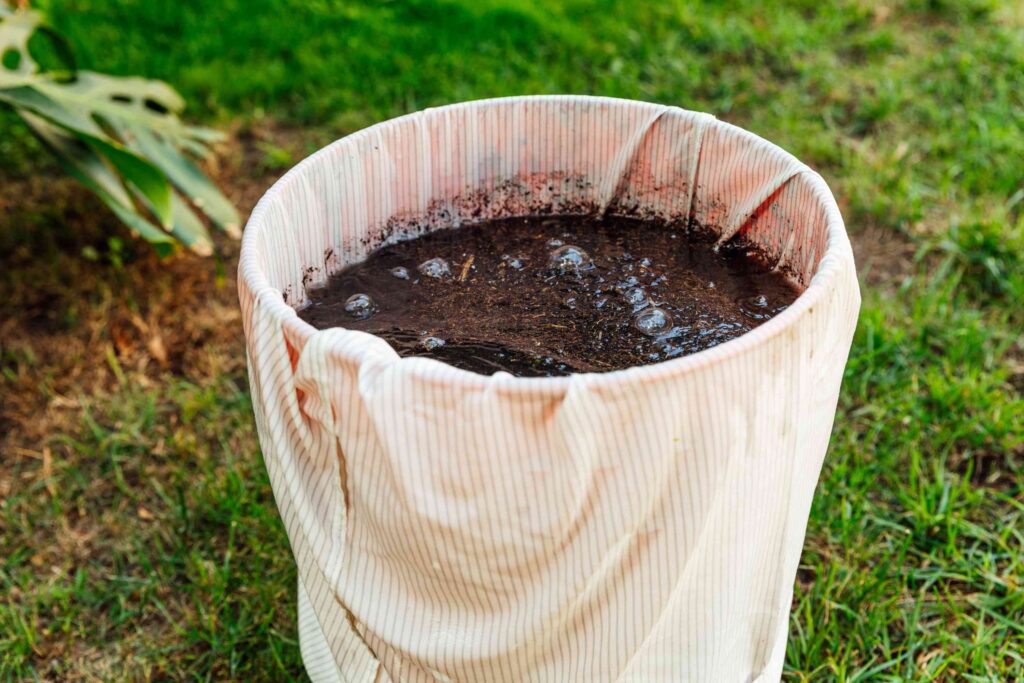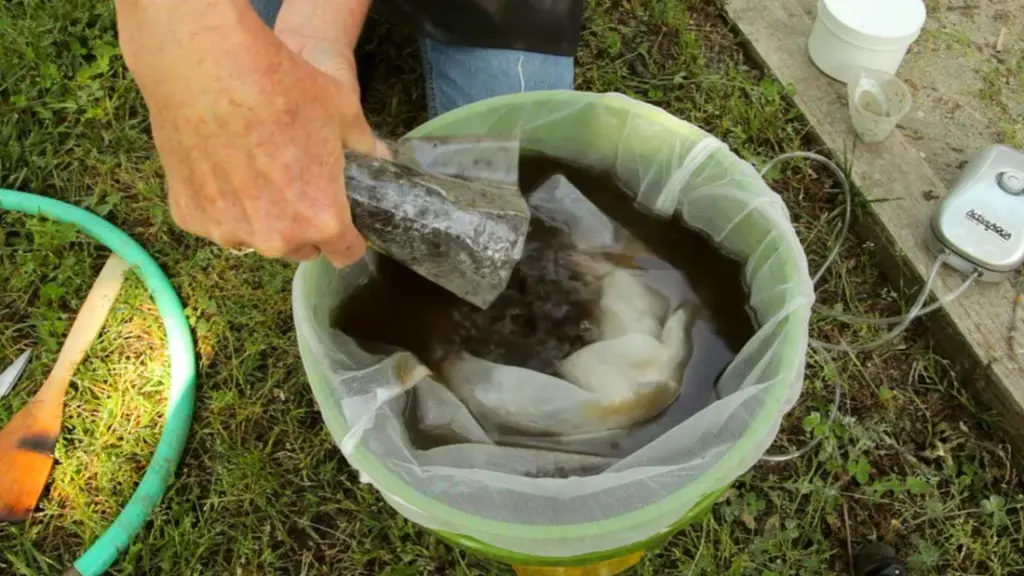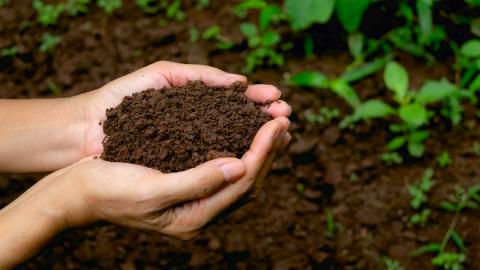Maintaining a lush, green lawn doesn’t have to rely on synthetic fertilizers or harmful chemicals. If you’re looking to feed your lawn organically, compost tea is one of the best natural solutions available. Not only is it eco-friendly, but it also promotes soil health, boosts microbial life, and supports resilient grass growth.
In this blog, we’ll dive into what compost tea is, its benefits, how to make it, and—most importantly—how to apply it to your lawn effectively.


What Is Compost Tea?
Compost tea is a liquid solution made by steeping compost in water. This process extracts beneficial microorganisms, nutrients, and organic compounds from the compost. The result? A powerful, all-natural fertilizer that acts like a probiotic for your soil.
Unlike chemical fertilizers, compost tea doesn’t just feed your grass—it nourishes the soil life beneath it, creating a healthier and more sustainable lawn ecosystem.
Benefits of Using Compost Tea on Your Lawn
Here’s why compost tea is a go-to for organic lawn care:
Feeds your lawn organically without synthetic inputs
Improves soil structure by increasing microbial activity
Suppresses plant diseases naturally by building resilient microbial communities
Reduces the need for irrigation thanks to improved soil water retention
Enhances nutrient uptake for stronger, greener grass
How to Make Compost Tea at Home
Making compost tea is simple and budget-friendly. Here’s a basic recipe:
Ingredients:
1 part finished compost (from kitchen scraps, yard waste, etc.)
5 parts non-chlorinated water (chlorine can kill beneficial microbes)
Optional: 1 tablespoon of unsulfured molasses to feed microbes
Instructions:
Fill a bucket (5-gallon is ideal) with water. Let it sit for 24 hours if using tap water to allow chlorine to dissipate.
Place compost in a porous bag (like an old pillowcase or mesh bag).
Submerge the bag in the water and stir.
Add molasses and stir again to energize microbial growth.
Let it steep for 24–48 hours, stirring occasionally. For best results, use an aquarium pump to aerate the mix—this creates “actively aerated compost tea” (AACT).
Strain the liquid before use to avoid clogging sprayers.
How to Apply Compost Tea to Your Lawn
Once your compost tea is ready, timing and technique are key to maximizing its benefits.
✅ Best Time to Apply:
Morning or late afternoon to avoid harsh sun
During spring and fall, when grass is actively growing
✅ Application Methods:
Sprayer Application
Use a garden or backpack sprayer to apply compost tea directly to the grass. Make sure to spray evenly and cover both soil and grass blades.Soil Drenching
Pour compost tea around the lawn base to target the soil directly. This method is especially effective when establishing new grass or reviving poor soil.Hose-End Sprayer
For larger lawns, hose-end sprayers can help distribute compost tea quickly and evenly.
Frequency:
Apply once every 2–4 weeks during the growing season. Over time, you’ll notice improved color, thickness, and resilience.
Expert Tips for Best Results
Use immediately after brewing. Compost tea is most effective within a few hours of completion.
Avoid direct sunlight during application to protect living microbes.
Don’t store compost tea long-term. It’s a living solution and degrades quickly.
Pair compost tea with regular mowing and proper watering for the healthiest lawn.
Why Choose Organic Lawn Care?
Feeding your lawn organically with compost tea does more than improve aesthetics—it helps the environment. Chemical fertilizers can leach into water systems, harm wildlife, and disrupt soil balance. Organic methods like compost tea:
Reduce runoff pollution
Improve biodiversity
Support sustainable gardening practices
Plus, it’s safer for pets, kids, and pollinators.
Conclusion: A Greener Lawn, Naturally
Using compost tea to feed your lawn organically is a smart, sustainable choice for homeowners who care about their landscape and the environment. By brewing and applying this natural lawn fertilizer, you’re building healthier soil, encouraging robust grass growth, and moving toward chemical-free lawn care.
So next time your lawn looks a little tired, skip the synthetic products—brew up some compost tea and let nature do the work!


